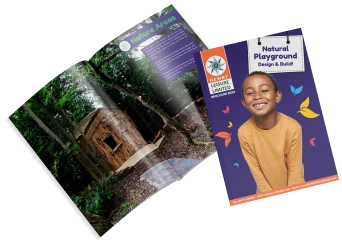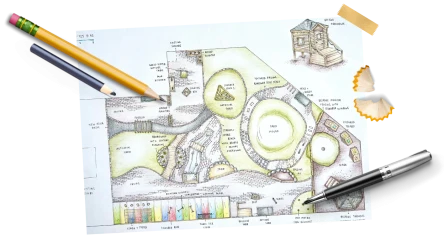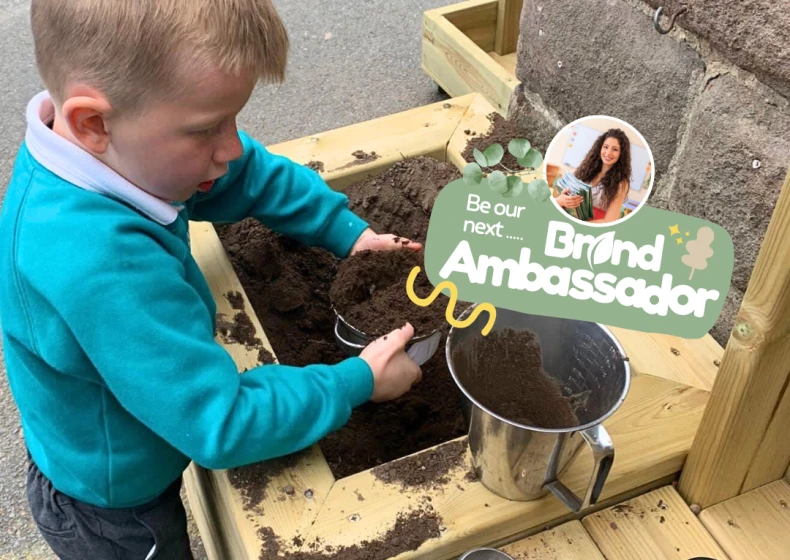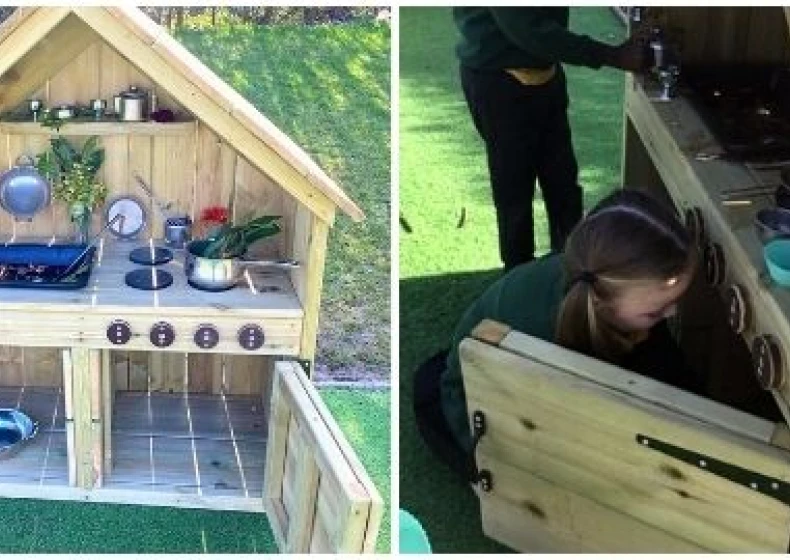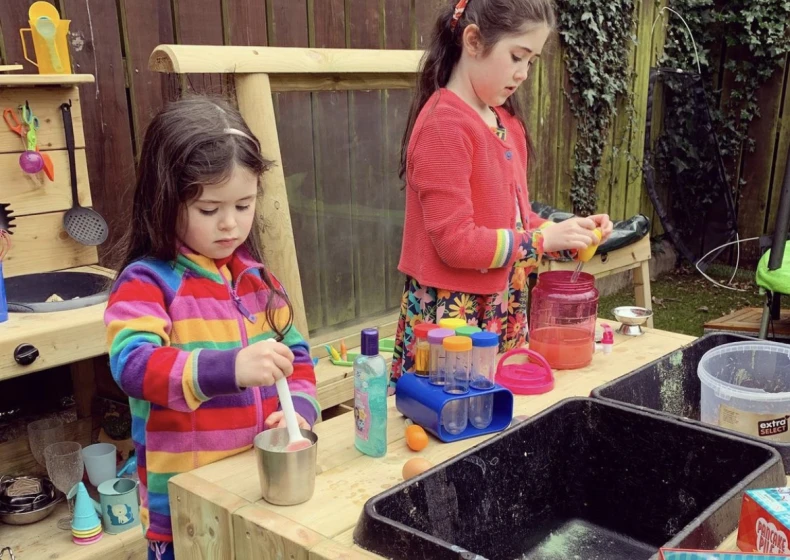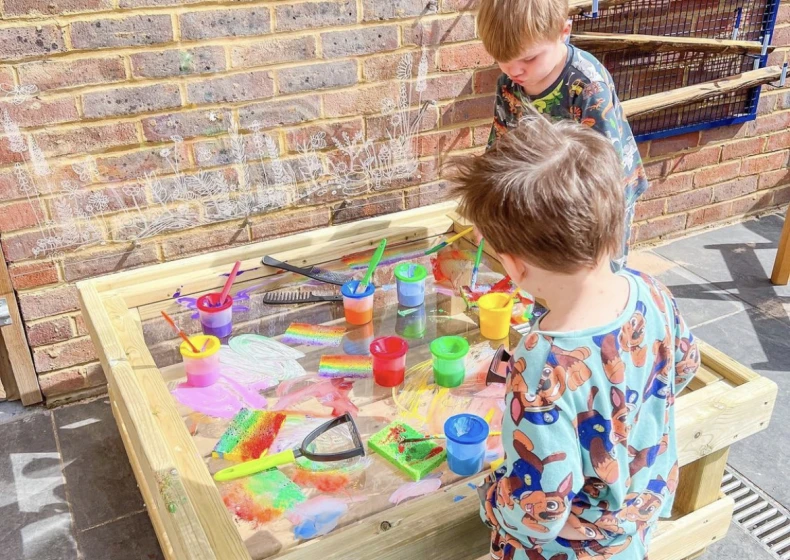Ever wondered what thoughts go through your little ones mind? They’re most likely to be roleplaying.
Roleplay is a fun way for kids to learn about themselves, others and their environment; whilst learning important skills that aid their cognitive and physical development. Newby Leisure, playground designer’s and build specialists, acknowledge the importance of role-playing for a child's development. Newby Leisure design and manufacture products that aid and inspire role play, so that your little one develops healthy and learns new skills along the way.
Different Types of Role Play
Occupational
When young children pretend to take on occupational job roles such as, police, doctors, nurses, teachers and builders, they’re engaging in play that encourages empathy amongst their peers. It’s fun and beneficial for early years to imagine themselves doing important roles in society. Through occupational role-play, early years naturally build their communication and problem-solving skills as they discuss situations they face in their imagined job role.
Fantasy
Fantasy is a big element of role play! Children are fascinated by superheroes and comic book characters who represent the good, the bad and the ugly. When early years act out these character roles they begin to understand right from wrong. Role-playing their favourite characters encourage bravery and confidence, as well as sparking creativity and innovative ideas. If children are participating in fantasy play with a group they will learn the value of collaboration with their fellow peers. When early years participate in role-playing they begin to understand how to negotiate character roles - who’s playing the good guy and the bad guy. Quite often they won’t get their first choice, though teamwork they come up with a solution to the problem through negotiation.
Real-life situations
When early years play out real-life situations such as construction play - building, constructing and deconstructing; they’re learning about their real environment. Real-life situations allow children to experiment, explore and investigate their surroundings. Through role-playing children develop communication skills and physical mannerisms which help them later on in life.
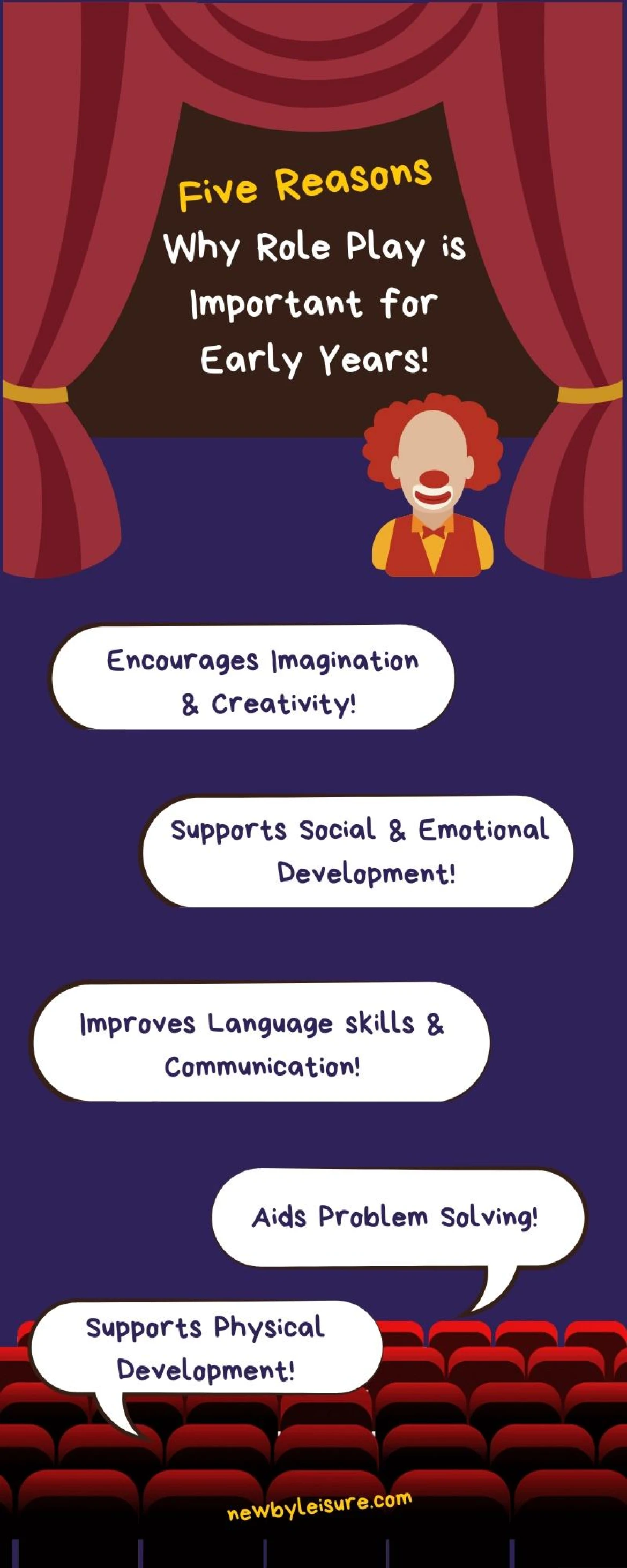
Five reasons why Role play is important for Early Years
1. Encourages Imagination and Creativity
According to current research, a child’s capacity for creative thinking and cognitive flexibility are closely linked to role play. Children must exercise and train their brain’s to imagine as early as possible, so that later on in life they have a good imagination to be able to envision a good book and understand different points of view. Albert Einstein emphasised that “Logic will get you from A to Z, however, imagination will get you everywhere”. Imagination and creativity are the foundation for genius ideas, groundbreaking cures and technological advances.
2. Social and Emotional Development
It's common to find children placing themselves in an imaginary setup where they find themselves easily interacting with others. During this activity, children take on the role of a character or person that they would like to play. Through the process of putting themselves into this character’s shoes, they begin to understand how to empathise with others. Through role-play, children learn how to manage their emotions and resolve conflicts with ease.
3. Improves Language Skills and Communication
Roleplay improves communication drastically! When children are interacting together they learn new words and expressions from those around them. Child begin to discover the most effective words to get their point across to their friends. As they use new words they become confident communicators and subsequently learn to listen to others.
4. Aids Problem Solving
Roleplay naturally produces scenarios that young children haven’t faced yet. Therefore they have to think outside the box for a solution. Thus, they begin to develop their problem-solving skills, especially when roleplaying in a group.
5. Physical Development
Aside from all the benefits listed so far, role play can aid early years physical development. Roleplay is very physical - children love to ‘imagine’ that their saving the day by running to the rescue and climbing up ladders to put a blazing fire out. Through role-play, children are engaging and developing their hand to eye coordination, fine and gross motor skills.
“Fantasy is hardly an escape from reality. It’s a way of understanding”. Lloyd Alexander
Lets us know what are you planning next for your Roleplay activity!?
Thanks for reading!
You may wish to keep updated with us on Facebook, Twitter and Instagram too to stay updated with regular news and insights.
"Together, we're better".


